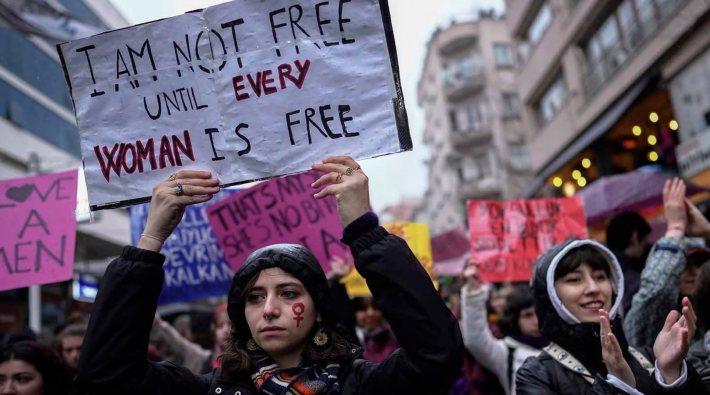Just when I thought nothing could surprise me anymore, my visit to Turkey proved otherwise. From the moment I arrived in Istanbul, I was struck by a profound sense of familiarity. At first, I couldn’t quite pinpoint whether this feeling stemmed from the warmth of its people or the evident sense of community among them. Upon reflection, I realized this connection might be rooted in shared characteristics often associated with countries of the Global South. Throughout my time there, I observed many parallels with my own country, Peru—some uplifting and others disheartening. On the one hand, I encountered the charisma and communal spirit that seem to define nations in this region of the world. On the other, I confronted a shared reality marked by authoritarian governance and pervasive gender-based challenges.
A Familiar Political Landscape
Surprisingly, I learned that the same president has governed Turkey for nearly two decades. Over the course of his tenure, President Recep Tayyip Erdoğan has systematically consolidated power, largely through the suppression of opposition groups—groups that now encompass any individual or organisation seen as deviating from government narratives. His presidency has also been marked by recurring economic instability, including severe inflation and the continued devaluation of the Turkish lira.
From the perspective of international relations, as we discussed in our Development in the Middle East module, prolonged incumbency often enables governments to tighten their grip on state institutions. This, in turn, perpetuates authoritarian rule, creating significant obstacles for democratic processes and governance. Such patterns are not unique to Turkey, as similar dynamics can be observed in other nations, including mine.
The Gender Divide: A Global Struggle
One of the most striking aspects of my visit was engaging in discussions about women’s issues, particularly during the Engaging with Contemporary Issues in Turkey (ECIT) conference. The statistics on femicide in Turkey were deeply troubling, but perhaps even more disheartening was the rhetoric from state officials regarding women’s roles in society. A particularly impactful example comes from an article by Gul Tuysuz, which highlights statements made by President Erdoğan. One of his remarks stood out to me: “No matter how successful a woman is, a woman who denies her motherhood, who gives up on looking after the home, is incomplete, is only half, is at risk of losing her uniqueness.” (2016).
While personal opinions on motherhood vary and everyone is entitled to their beliefs, hearing such a statement from a head of state reinforces outdated gender norms. These remarks not only risk perpetuating societal attitudes that constrain women but also contribute to the structural inequalities and violence they face, including femicide.
The Power of Sorority
The concept of sorority—solidarity among women—encapsulates the sentiment I carried with me upon leaving Turkey. This experience illuminated women’s shared struggles across different contexts, including in Peru. It underscored the reality that these challenges are neither isolated nor easily resolved. However, I found solace in the collective efforts of women worldwide, who continue to unite to demand recognition, action, and justice from their governments. As history has shown, solidarity is a powerful force in the fight for equality.
Reflections on Shared Realities
This experience deepened my understanding of the interconnected struggles for democracy, economic stability, and gender equality. It reminded me that cultural, historical, and political contexts often shape these challenges, but their underlying themes resonate globally. My time in Turkey inspired me to think critically about the importance of cross-cultural dialogue and collaboration as tools for addressing shared global issues. Empathy and understanding are essential to crafting effective solutions, and my visit reaffirmed the value of these principles.
I am incredibly grateful for the opportunity to visit Turkey and participate in a conference that brought together brilliant academics and fostered enriching dialogue among students. This journey was not only an academic endeavour but also a personal one, reminding me of the strength in shared experiences and the potential for collective progress.
Bibliography
- Tuysuz, G. (2016). 7 times Turkish President ‘mansplained’ womanhood. CNN. Available at: https://edition.cnn.com/2016/06/09/europe/erdogan-turkey-mansplained-womanhood/index.html [Accessed 20 Nov. 2024].
Illari Rimarachin Martinez
